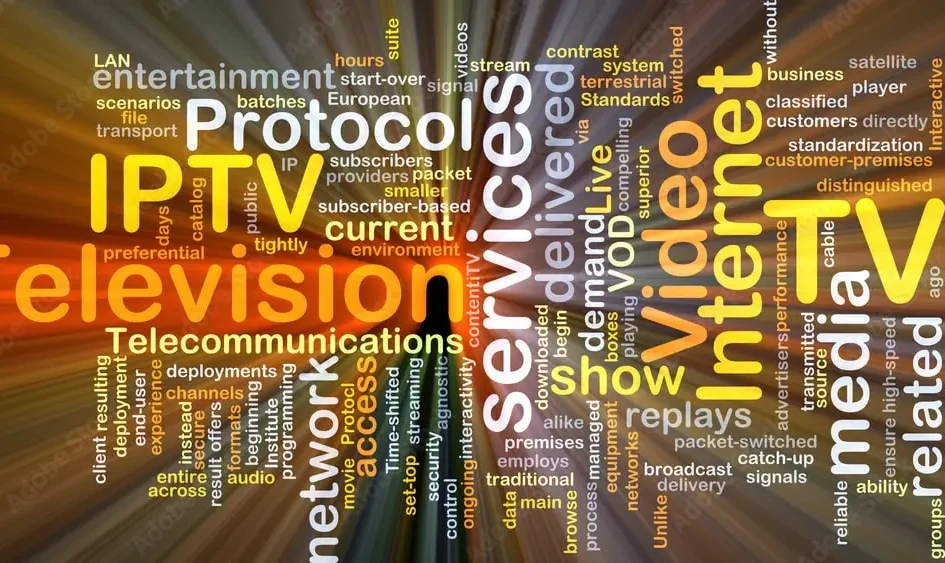
Introduction
In today’s digital age, there are countless ways to consume content on our screens. From streaming services like Netflix to traditional cable TV, the options seem endless. One of the latest trends in the world of television is Internet Protocol Television, better known as IPTV. But what exactly is IPTV, and why is it becoming increasingly popular?
What is IPTV?
IPTV is a technology that allows television services to be delivered over the internet rather than through traditional cable or satellite. This means that viewers can access their favorite shows and channels through an internet connection, giving them more flexibility and control over what they watch and when they watch it.
Why is IPTV becoming increasingly popular?
So why is IPTV gaining so much popularity? One of the main reasons is the increased availability of high-speed internet connections. With faster internet speeds becoming more common, more people are able to stream content seamlessly without buffering or lag. IPTV also offers a wider range of channels and on-demand content, giving viewers more options than ever before.
Overview of the guide
In this guide, we will delve deeper into the world of IPTV, exploring its benefits and how you can get started with it. Whether you’re a tech-savvy individual looking to cut the cord on traditional cable or just someone curious about the latest trends in television, this guide will provide you with all the information you need to know about IPTV. Stay tuned for more informative articles on this exciting technology!
How Does IPTV Work?
Explanation of IPTV technology
IPTV, or Internet Protocol Television, is a technology that is revolutionizing the way we watch television. Instead of receiving programming through traditional cable or satellite methods, IPTV uses the internet to deliver content directly to your device. But how exactly does IPTV work?
Different types of IPTV services
At its core, IPTV works by sending television signals over the internet rather than through the airwaves or cables. This allows for greater flexibility and control over what content you can watch and when you can watch it. There are three main types of IPTV services that are currently available:
- Video on Demand (VOD): VOD services allow you to browse a library of movies and TV shows and watch them at your convenience. This is similar to services like Netflix or Hulu, but with the added benefit of being able to watch live TV as well.
- Live IPTV: This type of service allows you to watch live TV channels in real-time over the internet. This is perfect for sports fans who want to watch their favorite games as they happen, or for news junkies who want to stay up-to-date with current events.
- Time-Shifted IPTV: Time-shifted IPTV allows you to rewind, pause, or fast-forward live TV channels, giving you greater control over your viewing experience. This is perfect for those who may have missed a show or want to skip through commercials.
How to set up IPTV on various devices
Setting up IPTV on various devices is relatively simple. Many IPTV providers offer their own apps that you can download onto your smart TV, streaming device, or smartphone. Once you have downloaded the app, you can log in with your subscription information and start watching your favorite shows and movies.
Choosing the Right IPTV Service Provider
Factors to consider when selecting an IPTV provider
When choosing an IPTV service provider, there are several factors to consider:
- Content Library: Make sure the provider offers a wide range of channels and on-demand content that aligns with your viewing preferences.
- Quality and Reliability: Look for a provider that offers high-quality streams with minimal buffering and downtime.
- Pricing: Compare the pricing plans of different providers to find one that fits your budget.
- Device Compatibility: Ensure that the IPTV service is compatible with the devices you plan to use for streaming, such as smart TVs, streaming boxes, and mobile devices.
- Customer Support: Read reviews and testimonials to gauge the level of customer support provided by the IPTV service provider.

Tips for finding the best IPTV service for your needs
here are some tips for finding the best IPTV service for your needs:
- Read Reviews: Look for reviews and testimonials from other users to get an idea of the quality and reliability of the IPTV service provider.
- Free Trials: Take advantage of free trials offered by IPTV service providers to test out their service before committing to a subscription.
- Check for Hidden Fees: Be wary of providers that have hidden fees or additional charges that may not be disclosed upfront.
IPTV Features and Benefits
Overview of the features offered by IPTV services
IPTV, or Internet Protocol Television, allows users to stream TV shows and movies over the internet instead of through traditional cable or satellite TV providers. One of the key features of IPTV is its ability to offer a wide variety of channels and on-demand content, giving viewers more control over what they watch and when they watch it. With IPTV, users can easily access their favorite shows, movies, and sports events with just a few clicks of a button.
Benefits of IPTV over traditional cable and satellite TV
benefit of IPTV is its cost effectiveness. IPTV services are often more affordable than traditional cable or satellite TV packages, making it a great option for budget-conscious consumers. Additionally, IPTV services typically offer more flexibility in terms of subscription options, allowing users to choose the package that best fits their needs and budget.
One of the biggest advantages of IPTV is its compatibility with multiple devices. Whether you prefer to watch TV on your smart TV, tablet, smartphone, or computer, IPTV services can be accessed on a wide range of devices, making it easy to enjoy your favorite content wherever you are
How to maximize your IPTV experience
To maximize your IPTV experience, consider investing in a high-speed internet connection to ensure smooth streaming and minimal buffering. It’s also a good idea to explore the various features offered by your IPTV service, such as recording capabilities, parental controls, and on-demand content options
Conclusion
As we reach the conclusion of our comprehensive guide to IPTV, it’s important to take a moment to recap the key points covered throughout our journey.
First and foremost, we established a solid understanding of what IPTV is and how it differs from traditional television services. We discussed the various types of IPTV, including video on demand, live television streaming, and time-shifted media. We also explored the benefits of IPTV, such as access to a wide range of content, interactive features, and personalized viewing experiences.
We delved into the technology behind IPTV, including the role of servers, middleware, and set-top boxes in delivering content to viewers. We also highlighted the importance of high-speed internet connections for a seamless IPTV experience.
Looking towards the future, it’s clear that IPTV is poised for continued growth and innovation. As more consumers cut the cord and turn to streaming services for their entertainment needs, IPTV will play an increasingly important role in how we consume media. The rise of 5G technology and advancements in artificial intelligence will further enhance the IPTV experience, offering even more personalized and immersive content options.

